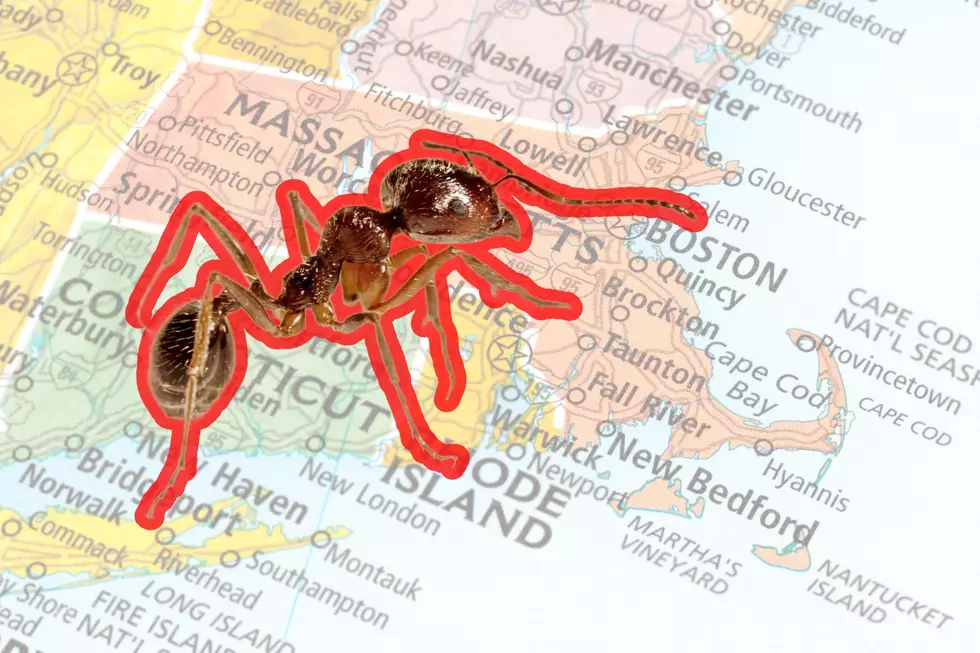
Immigration Enforcement Bill Brings Large Crowd to State House
BOSTON — Eleven-year-old Bryan Rosa of Allston stepped into a pitched debate over immigration enforcement Friday, telling a lawmakers he fears for the future of his 3-year-old sister if they do not pass a bill limiting coordination between the federal and local authorities.
"I sometimes fear that if this act didn't pass, my parents might get taken away and my sister might not remember them when we grow up," Bryan, whose parents are from Brazil, told the Committee on Public Safety and Homeland Security.
Proponents of the legislation (S 1305/H 3269) said it would prevent local authorities from detaining someone solely at the request of Immigration and Customs Enforcement (ICE). If adopted, the bill would provide them due process rights but would not hamper coordination on criminal enforcement actions, such as the sweep that netted 34 people allegedly involved in a fentanyl trafficking ring last week, according to the bill's supporters.
Progressive lawmakers have for years sought variations of legislation, previously known as the Trust Act and now dubbed Safe Communities Act, severing certain ties between local authorities and the federal agency responsible for enforcing immigration laws.
This session that proposal, which has never passed either branch, has the potential to run headlong into President Donald Trump's plans for stepped-up border enforcement. Democratic lawmakers have demonstrated both eagerness and hesitancy to push back against the Trump administration.
The House passed a Rep. Antonio Cabral bill barring the use of Massachusetts inmate labor on a border wall but the branch pulled back from earlier plans to take up another Cabral bill barring state resources from being used for a program that essentially deputizes state and county law enforcement to carry out some ICE responsibilities.
"I think there were some concerns relative to the possible interpretation by some that they felt it could be interpreted as a sanctuary city, town, state bill," House Speaker Robert DeLeo said this week about Cabral's bill.
The legislation heard Friday filed by Lawrence Rep. Juana Matias and Acton Sen. Jamie Eldridge, both Democrats, would prohibit state and local law enforcement from deputizing officers as immigration agents. It would also bar state agencies from providing information for a hypothetical federal program registering people based on race, sexual orientation, religion or other certain other characteristics.
While Eldridge cast his bill as a civil rights measure akin to state lawmakers' stand to support gay marriage a decade ago, Bristol County Sheriff Tom Hodgson described it as a political move that would "put the public at risk."
"Why is ICE cherry-picked as the one federal law enforcement agency we can't partner with?" Hodgson asked. He said, "This bill trades the safety and security of our citizens and legal residents for the comfort and concealment of criminal illegal immigrants."
Matias said that Lawrence adopted its own version of the Trust Act in 2015, but that did not hamper local police from cooperating with federal law enforcement on "Operation Bad Company," which netted 34 people allegedly involved in a fentanyl ring, including four arrested administratively by ICE.
Proponents of the bill said it would engender more cooperation between law enforcement and unauthorized immigrants who might otherwise fear that talking to police could lead to their deportation.
In its efforts to crack down on the international gang MS 13, Somerville police reached out to all members of the community "regardless of immigration status," Chief David Fallon told lawmakers, but Hodgson said immigration violations should not be overlooked.
"It's not about immigrants being afraid," Hodgson said. "It's about illegal immigrants being afraid to come forward, much like you would be for any bank robber, any tax evader deciding to go into the police station and tell them that somebody broke into a car next to their home. Because they're worried that they're going to get caught."
Hodgson, a Republican, also said detaining inmates on behalf of ICE brings in revenue for the state. According to the Office of Administration and Finance, the state has taken in more than $20 million annually the past few years for incarcerating all types of inmates on behalf of the federal government.
Suffolk County Sheriff Steve Tompkins told reporters his facilities are now holding 140 to 150 inmates at ICE's request. He said it is a "tricky" situation because people do not want their loved ones incarcerated "but if they're not in Boston they're going to be in Plymouth or they're going to be in Texas."
A Democrat, Tompkins said he hoped to hear from cities and towns on immigration enforcement and said, "If you're going to hold my feet to the fire, I support the bill."
Gov. Charlie Baker, who is sometimes reluctant to weigh in on pending legislation, put out a statement Friday as the hearing was getting underway, saying he opposes the bill that "would prohibit law enforcement from enforcing bipartisan policies that have been in place for 10 years and prevented violent and dangerous convicted criminals from being released back onto our streets."
"Our administration does not support making the Commonwealth a sanctuary state and urges the Legislature to hold this bill in committee and reconsider ways to ensure Massachusetts remains a welcoming place while maintaining public safety," Baker said.
Matias said she and others are working with police chiefs on developing a list of crimes that would be considered violent felonies under the legislation. The bill would prohibit state authorities from sharing an immigrant's date of release from custody except for those convicted of violent felonies.
The state courts could soon weigh in on state authorities' cooperation with ICE. After hearing oral arguments in April, the Supreme Judicial Court is weighing whether state officials had the legal authority to detain Sreynuon Lunn at the request of ICE even though he was otherwise free to go.
The committee on Friday also heard from Maureen Maloney, the mother of Matthew Denice, who was hit and killed by a drunk driver named Nicolas Guaman. The driver is originally from Ecuador and was in the country illegally.
"I still cry every day for him," Maloney told the News Service. "You want to talk about families being permanently separated? I don't have any visitation options. I can't Skype him. I can't call him. I can't text him. This is the ultimate definition of permanently separated."
Maloney said she believes Guaman might never have had a chance to kill her son if there had been greater cooperation between federal and local law enforcement. She said that after Guaman is released from prison "I sure hope they deport him. They're supposed to."
In Friday's packed hearing room where the Eldridge and Matias bills were the only matters on the agenda, proponents of the proposals appeared to outnumber opponents. The long-simmering debate over immigration policy has become even more controversial as activists have squared off with the Trump administration over federal efforts to restrict people from certain countries from entering the country.
Somerville Democrat Rep. Denise Provost likened immigration enforcement to the Fugitive Slave Act, which preceded the Civil War and was actively resisted in Boston.
Proponents of the bill emphasized that immigration violations, such as overstaying a visa, are civil offenses not crimes while opponents clarified that they support legal immigration.
Spencer Republican Rep. Peter Durant, an opponent of the bill, asked supporters of the proposal, "Should the United States be allowed to determine who comes into the country?" The proponents did not offer a clear-cut response, pointing to the complexity of immigration laws.
Jamaica Plain Sen. Sonia Chang-Diaz questioned Hodgson about his compliance with civil statutes.
"Sheriff, have you committed any civil infractions?" Chang-Diaz asked.
"Have I sped? Have I gone over the speed limit? Is that what you're asking me?" Hodgson responded. "I'm sure I've gone over the speed limit in my lifetime. And your point?"
"You're making the point that we should not cherry-pick which laws we take seriously and which laws we enforce so I'm just asking the question for context," Chang-Diaz replied.
"Well there's consequences," Hodgson said. "If I'm caught speeding there are consequences for it, much like there would be for the very same analogy that you're giving. I'm not suggesting that I should have less consequences than anyone else."
--Andy Metzger, State House News Service
More From WBSM-AM/AM 1420









